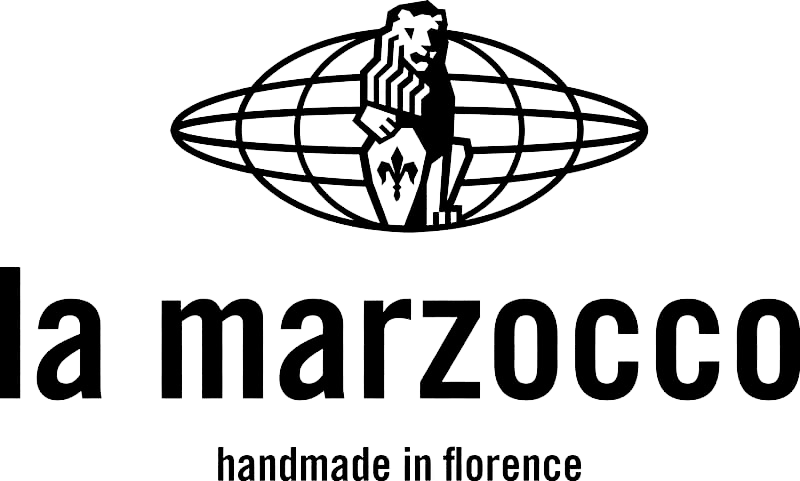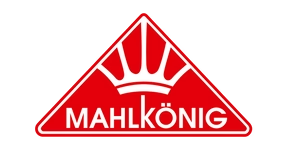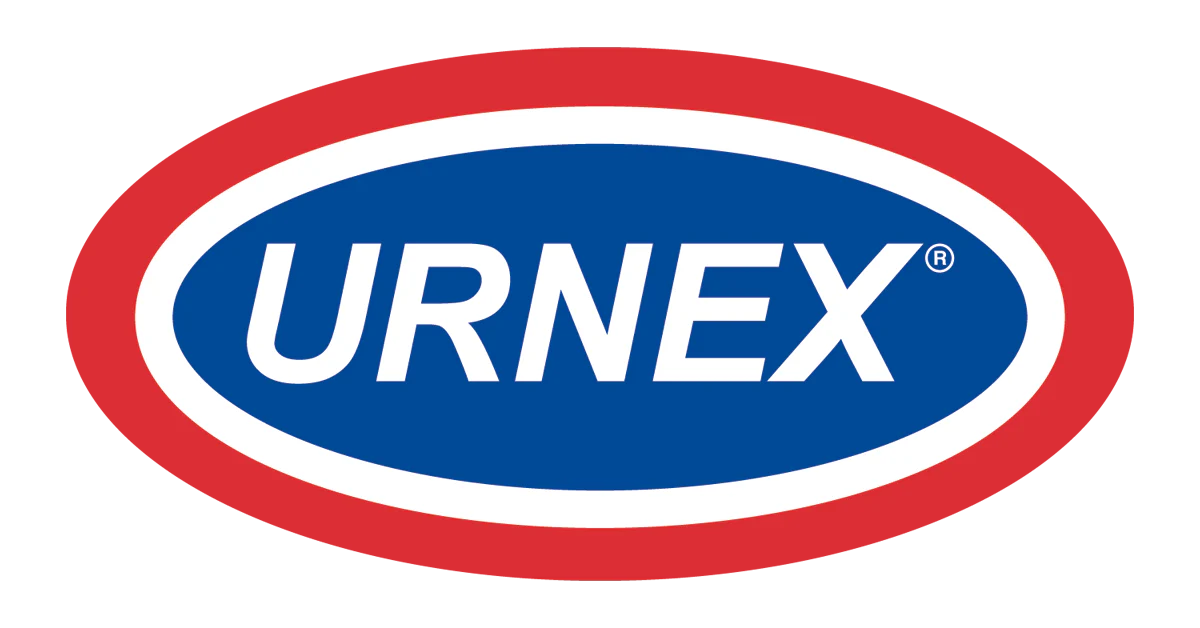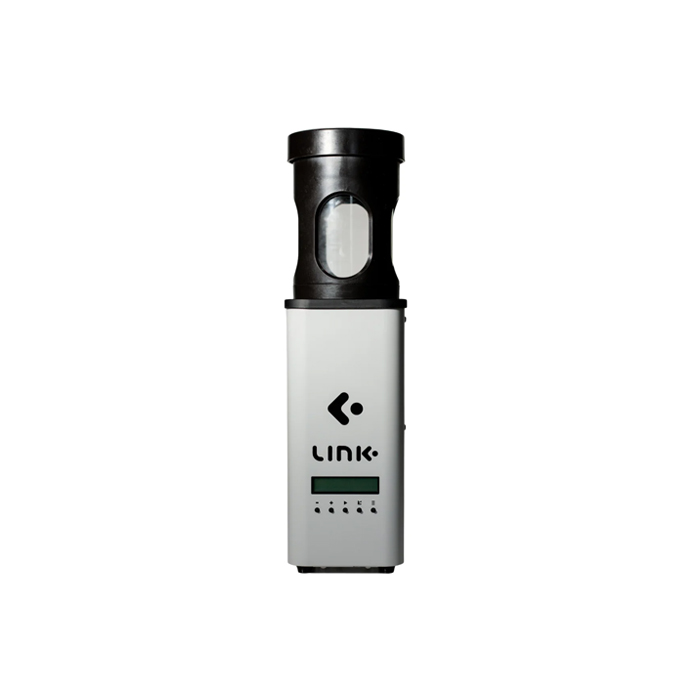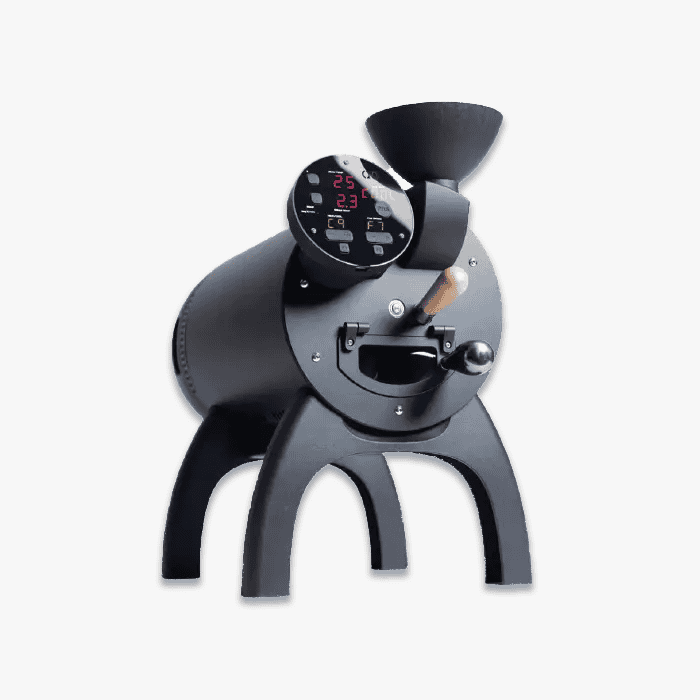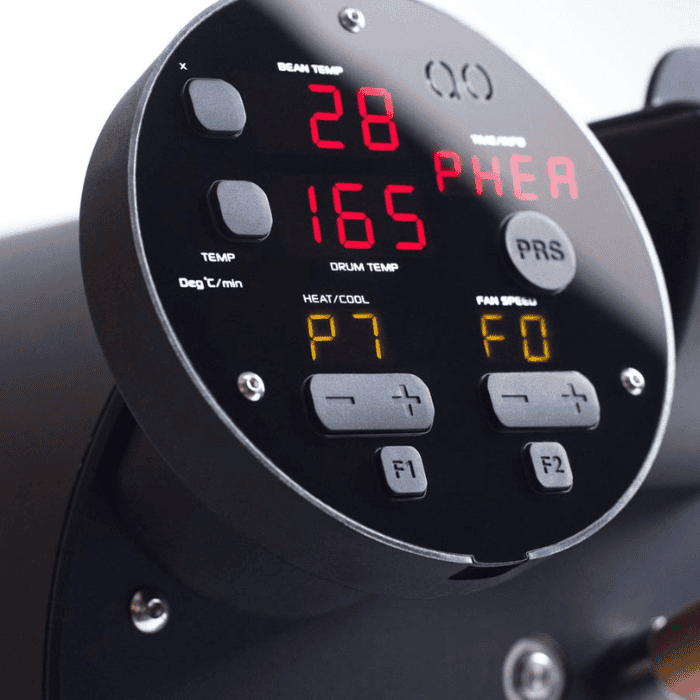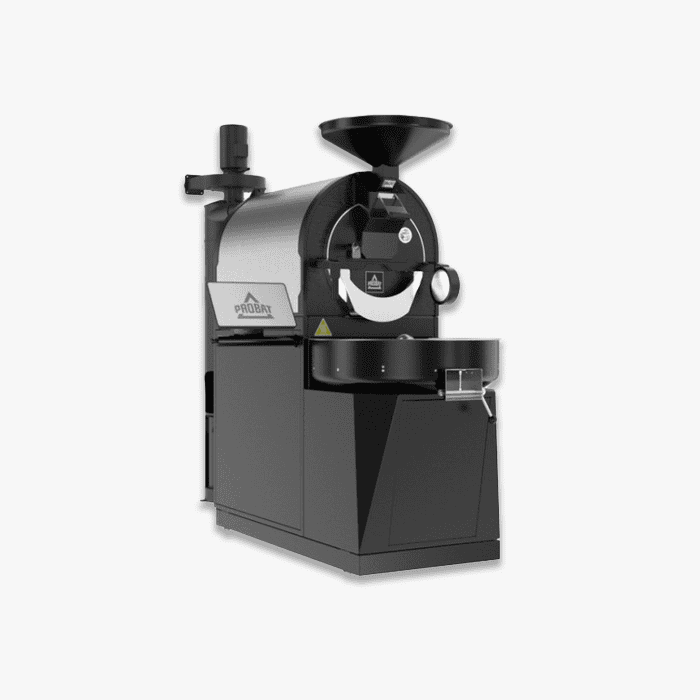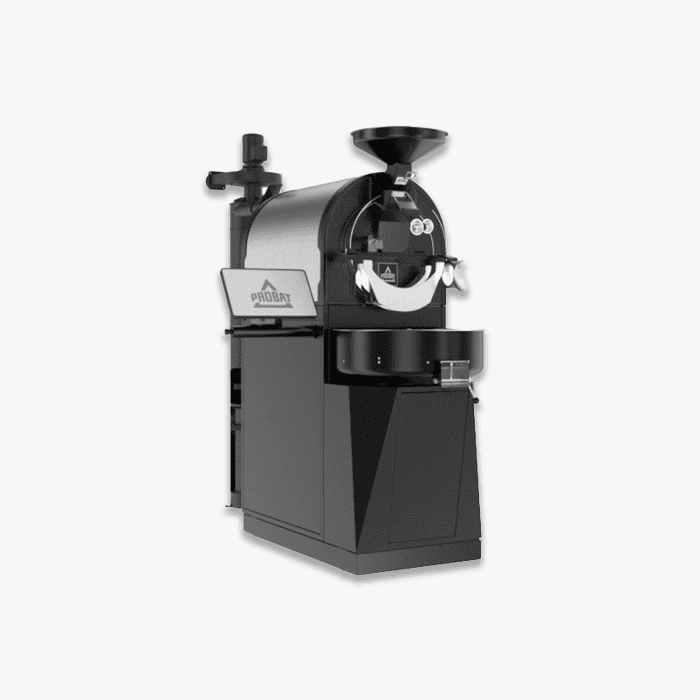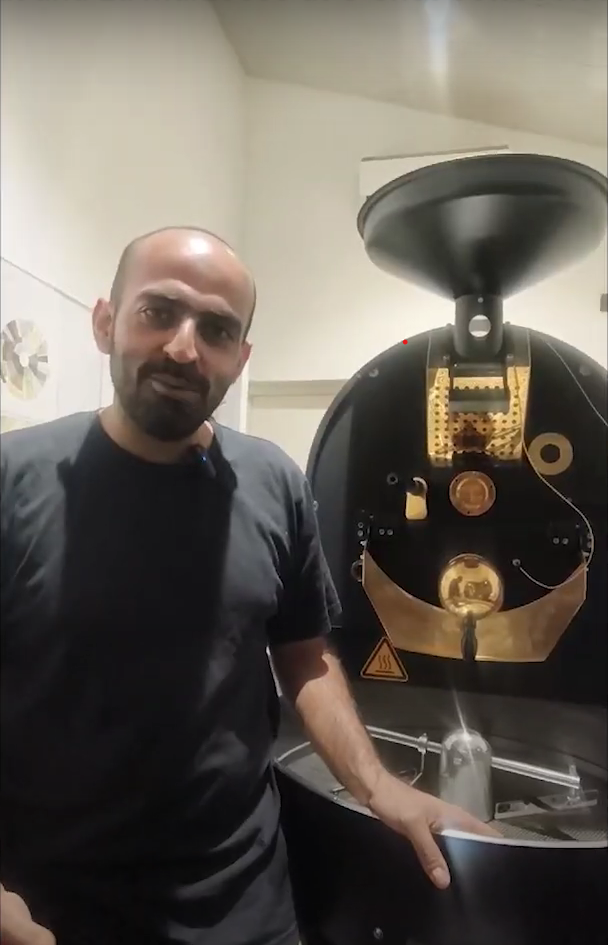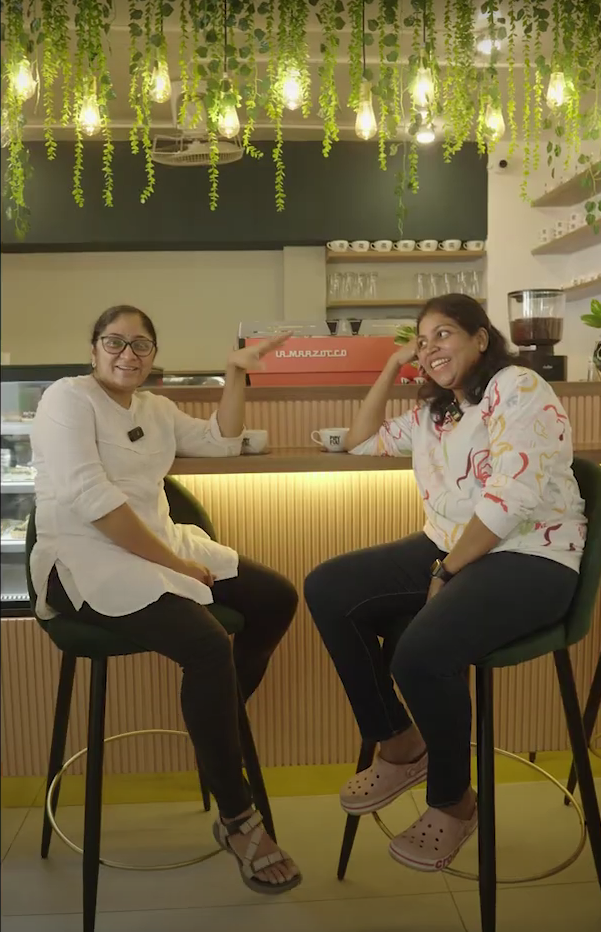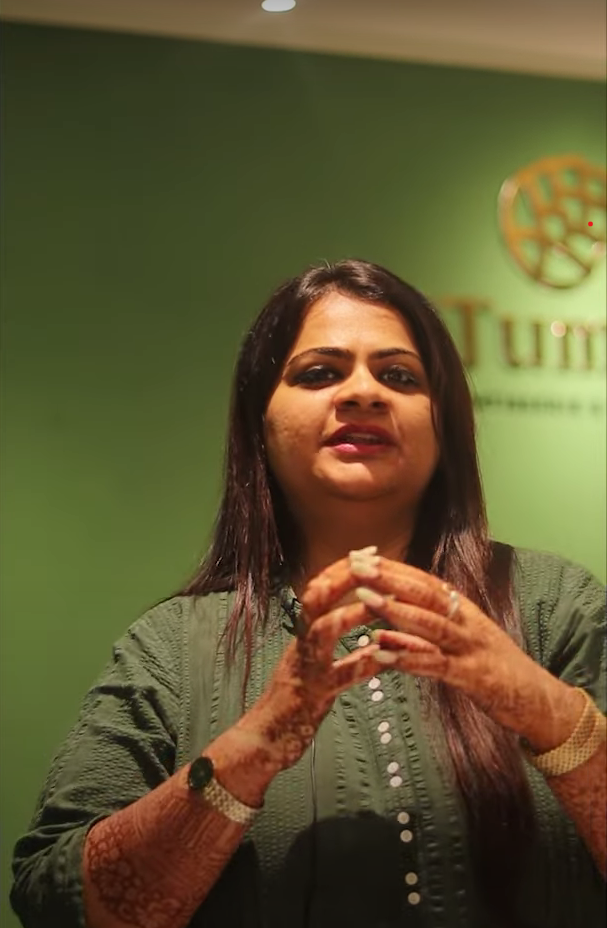Explore Commercial Coffee Roaster
Understanding the Importance of Commercial Coffee Roasters
Recognising the value of commercial coffee roasters is essential for any coffee company that wants to succeed. With the fine control that commercial roasters offer over roasting profiles, every batch is guaranteed to be consistent and to develop flavour to its full potential. They allow customisation to draw attention to bean qualities, satisfying a range of consumer tastes. High-capacity roasters increase productivity, satisfying the needs of busy cafés while lowering expenses per unit. Investing in a high-quality roaster also improves the coffee's freshness and quality when served, helping you establish a stellar reputation. Businesses may differentiate themselves with distinctive blends, increasing consumer loyalty and revenue by managing the roasting process.
Types of Commercial Coffee Roasters
Drum Commercial Coffee Roasters
As the name suggests, a drum roaster is a coffee roasting machine with a specially designed cylinder-shaped chamber used to make roasted coffee. This chamber, known as a drum, is where the coffee beans are placed, set to a temperature, and rotated until the beans crack. To create your perfect coffee roast, you can experiment with several factors, such as drum speed, temperature, airflow, length of roast, and more. These days, you can get high-quality drum coffee roasters to boost your coffee-drinking habit.
Sample Coffee Roasters
A sample coffee roaster is a small-scale roasting device used to experiment with and assess coffee beans. Small batches, usually between 50 and 300 grams of beans, let roasters experiment with various roast styles. This aids in figuring out the best roasting conditions, including temperature and duration, to produce the required flavour profiles. Before committing to larger batches, roasters can evaluate the possibilities of new coffee bean kinds with sample roasters, which are crucial instruments for quality control. Additionally useful for instructive and instructional purposes, they aid baristas and coffee connoisseurs in understanding the nuances of roasting.
Features of Commercial Coffee Roasters
- Size and Density: The Probat Sample Roaster is built to support a batch capacity of 200g coffee beans. On the other hand, the Aillio Roaster is designed to roast 1 kg of coffee beans.
- Heating Time: The Probat Roaster has a roasting time between 10 to 15 minutes, and the first crack appears at 7 to 8 minutes. The Aillio Roaster can make the first crack appear in 1 kg of beans in under 12 minutes.
- Ease of Use: Deciding on a roast profile becomes easy since the Probat Roaster has few controllable variables. The Aillio Roaster has an easy interface that allows you to control several variables during the roasting process, such as heating power, drum speed, and fan speed. The roaster will enable you to take a sample mid-roast. You can also get a glimpse of the beans through the glass.
- Quality of Coffee Roasts: The Probat roaster results in an unexceptional flavour of the coffee. The product of roasted coffee in an Aillio roaster is also delicious and flavour-rich.
The Probat and Aillio are both exceptional drum roasters that can offer flavourful coffee with roasted coffee beans. While the Probat is simple to use, the Aillio provides more scope for experimentation.
Roasting Profiles
Types of Coffee Roasts
- Light Roasts(Common name: New England, Half-City, Cinnamon).
Light coffee roasts are roasted for less time, generally at 350 to 400 degrees F. Light roasts will not have that oily texture in their body as they are not roasted for long at high temperatures. They generally come in light brown. The longer you roast a bean, the more heat it pulls, increasing the caffeine and acidity. Hence, light roasts have the most caffeine content and are highly acidic. Lightly roasted coffee beans are mainly used in specialty coffee industries and cafes to deliver premium-rich, unique flavours out of coffee.
- Medium Roasts(Common names: City, Regular, American).
Medium-roasted coffee beans are roasted from 410 degrees F to 425 degrees F. Compared to light-roasted ones, medium-roasted coffee beans have less acidity. An average coffee drinker generally uses medium roast coffee beans as they come with balanced flavours. This roast is medium brown with a strong taste and non-oily body. Medium coffee roasts are also known as American roasts, as Americans prefer this type of roast.
- Dark roasts(Common name: French, Espresso, Turkish, Italian, Dark French, Heavy)
The ideal temperature to roast a dark coffee bean is 430 degrees F and 460 degrees F. This is heavily roasted coffee with a slight tinge of spiciness in the taste. You can see the oily texture in the body. With a rich and sweet flavour, this dark roast coffee is ideal for making Espresso and French roast. Also, dark roast coffee contains the least caffeine, as it is roasted at high temperatures for a long time.
Factors to Consider when choosing a commercial coffee roaster
To make sure your industrial coffee roaster suits your demands, consider the following considerations before investing:
- Roasting Consistency and Quality: To guarantee consistent, excellent roasts, use a roaster with precise temperature, airflow, and drum speed control systems. Choose between gas and electric variants depending on your preferred level of control.
- Automation and User-Friendliness: Seek features that automate processes, reduce training time, and have user-friendly interfaces.
- Energy Efficiency and Environmental Impact: Be mindful of the fuel consumption of your roaster and ensure it has emissions controls in place to comply with environmental laws. By choosing an energy-efficient roaster, you’re saving on costs and contributing to a greener future, a responsibility we all share.
- Size and area Requirements: Verify that the roaster is the right size for the area you have available and has the proper ventilation systems.
- Reputable brands with a solid dependability and quality track record should be chosen. Good customer service and readily available components should also be provided.
- Cost and Budget: Consider fuel and maintenance expenses while weighing the initial expenditure against the required features.
Explore Selection of Commercial Coffee Roasters for Sale
We have listed down great coffee roasting machines which have been coffee industry leaders for decades.
- Probatone Gas Roasters: Shop/Commercial Roasters: Drum roasting is the most common method. Here, the coffee is roasted in a drum that rotates around a horizontal axis. The PROBATONE shop roasters use specially developed shovel mechanisms to move the beans inside the drum. A surface burner heats the roasting air before it is sucked through the back wall of the drum as well as guided around it, thus roasting the beans not only via convective but also conductive heat transfer. With roasting capacities ranging from 17 to 85 kilograms of roast coffee per hour (kg/h), the PROBATONE shop roasters are particularly suitable for small to medium-sized roasting facilities with high-quality demands on the product.
- Bullet Aillio Electric: Personal / Sample Roaster: The Bullet R1 is a 1KG personal/sample proper drum coffee roaster. Automatic drum pre-heating, adjustable heat and fan speed, and continuous real-time feedback provided by infrared bean and drum temperature sensors combine for precise, consistent roasting. Easily capable of bringing one kg of beans to first crack in under 12 minutes, a remarkable feature for a roasting machine that fits neatly on your kitchen counter and plugs into any standard wall socket. Details of each roast can be digitally recorded and saved as roast profiles that can then be replayed or shared between roasters. Easy to clean and maintain. Induction heating system with over 95% efficiency.
- Kaldi Gas Roaster: Sample Roasters: The Kaldi Roaster looks and operates like giant roasting machines in the back of commercial roasting facilities. It’s just a lot smaller.
The Kaldi Coffee Roaster is a powerful workhorse without bells and whistles. While you won’t find timers and rows of buttons, you’ll have complete control over all the variables, such as drum temperature, roasting time and drum speed. This manual spirit makes the Kaldi roaster an excellent tool for learning the nuances of coffee roasting. You can’t just sit on the sidelines. You must participate. Become an artisan. The Kaldi is well-built and quite smart-looking. It’s a shiny stainless-steel roaster made of heavy gauge materials—very sturdy for a home roaster.
Get Started with Commercial Coffee Roasting
We’d love to be your guide on your commercial coffee roaster journey. At Kaapi Machines, we offer expertise and personalised assistance to help you select the perfect coffee roaster machines to meet your needs and preferences. Our extensive collection includes not just commercial coffee roasters, but also automatic coffee machines, semi-automatic coffee machines, coffee grinders, heavy duty coffee grinders, coffee machines, coffee roasters, commercial coffee roasters , coffee accessories , coffee equipments ,commercial blenders, commercial coffee roasters, coffee bean machines, coffee blenders,coffee brewers, coffee vending machines for office , professional coffee machines , manual brewers , espresso machines ,cappuccino coffee machines, coffee machines with grinder ,coffee breweing machines , espresso machines for cafe , electric coffee blenders , coffee machines with steamer , fully automatic coffee machines and specialized espresso machines for cafe, coffee machines for restaurant, specialty coffee machines, coffee machines for hotels, coffee machines for cafés and offices. From consultation to installation also barista training, we’re here to ensure that your coffee experience is nothing short of extraordinary.
Our Trusted Partners
At Kaapi Machines, we believe in offering only the best equipment to our customers. That’s why we’ve partnered with some of the most renowned brands in the coffee industry. Our trusted partners include La Marzocco, Rancilio, La Carimali, WMF, Kalerm, Porbat, Anfim, HeyCafe, Ditting, Mahlkönig, Brood, Ripples, BUNN, Budan, Toddy, PUQPress, Tone, Fredda, Harmony, Aillio, and Urnex. These leading brands ensure that we provide you with top-tier, reliable, and innovative coffee solutions for every need, from cafes and restaurants to offices and hotels. Whether you’re looking for the perfect espresso machine, grinder, or brewing equipment, our partnerships with these trusted brands guarantee exceptional quality and performance.
Expert Voices Behind Every Coffee Equipment We Offer :Meet Our Coffee Experts
Author Profile: Rasika Tulaskar
Head of Coffee Education & Training | Kaapi Machines & Something’s Brewing
With over 9 years of hands-on experience in the coffee industry and more than 2,000 hours dedicated to brewing, Rasika Tulaskar is a passionate educator, accomplished trainer, and a respected name in the Indian specialty coffee scene. As the Head of Coffee Education and Training at Kaapi Machines and Something’s Brewing, Rasika leads the charge in equipping aspiring baristas, café professionals, and home brewers with the skills and knowledge they need to elevate their coffee journey.
Her approach blends deep technical expertise with a practical, real-world understanding of both traditional and modern coffee techniques. From espresso fundamentals to advanced latte art, Rasika has trained hundreds of coffee enthusiasts and industry professionals, helping them perfect their craft and build rewarding careers.
Rasika believes that great coffee is both an art and a science—and through her engaging training sessions, personalized workshops, and curriculum development, she continues to foster a vibrant coffee culture across India. Whether you’re stepping behind the counter for the first time or exploring specialty brewing at home, Rasika’s guidance can turn your passion for coffee into a lifelong skill.
Linkedin Profile: https://www.linkedin.com/in/rasika-tulaskar-5b9112166
Author Profile: Amish Ghai
Coffee Trainer & Consultant | Kaapi Machines & Something’s Brewing
With over 7 years of professional experience and more than 2,000 hours spent perfecting his craft, Amish Ghai brings a rich blend of global exposure and practical expertise to the world of coffee. Before joining Kaapi Machines and Something’s Brewing, Amish honed his skills working with several renowned café brands across India and abroad, gaining deep insights into international coffee trends and best practices.
Amish is highly regarded for his specialization in menu engineering, efficient bar workflow design, and precision-driven coffee recipe development. His holistic understanding of café operations enables him to guide baristas, café owners, and coffee professionals in creating spaces that are not only efficient but also deliver consistently exceptional coffee experiences.
As a trainer and consultant, Amish is passionate about sharing knowledge that goes beyond brewing—focusing on the synergy between taste, technique, and workflow. Whether he’s helping design a high-performing coffee bar or coaching teams on signature beverage creation, Amish’s approach is rooted in innovation, clarity, and hands-on mentorship.
With Amish on your side, you don’t just learn how to brew better—you learn how to think like a coffee professional.
Linkedin Profile: https://www.linkedin.com/in/amish-ghai-04336b154
Author Profile: Rohit Somvanshi
Coffee Trainer | Kaapi Machines & Something’s Brewing
With over 4 years of hands-on experience in the coffee industry and more than 1,000 brewing hours, Rohit Somvanshi brings youthful energy and creative flair to the art of coffee making. Before joining Kaapi Machines, Rohit worked with some of the largest and most respected coffee companies in India, gaining strong foundational knowledge across café operations, brewing techniques, and customer service.
A Barista Pride Winner, Rohit is celebrated for his passion for crafting unique coffee beverages and his artistic approach to latte art. Whether it’s perfecting microfoam or experimenting with new milk textures, he enjoys pushing creative boundaries to turn every cup into an experience.
Rohit’s approachable teaching style and strong technical grounding make him a favorite among new and aspiring baristas. At Kaapi Machines and Something’s Brewing, he plays a key role in training baristas and coffee lovers to understand the finer points of espresso, milk texturing, and visual presentation.
From mastering latte art to brewing excellence, Rohit inspires coffee enthusiasts to explore creativity in every cup—one pour at a time.
Linkedin Profile: https://www.linkedin.com/in/rohit-somvanshi-b62172141
Author Profile: Shrushti Tailor
Manual Brewing Expert | Coffee Educator | Kaapi Machines & Something’s Brewing
With over 4.5 years of experience working as a barista in specialty cafés across India and abroad, Shrushti Tailor brings a global perspective and deep expertise to the world of coffee. Accumulating over 1,000 hours of hands-on brewing experience, Shrushti specializes in manual brewing techniques and café operations.
Her journey in coffee began behind the counter of artisan cafés, where she honed her skills in pour-over, AeroPress, French press, and other manual brewing methods. She is particularly passionate about the sensory nuances and craftsmanship involved in manual brewing. Having managed café operations, she also has strong knowledge in workflow efficiency, customer experience, and beverage consistency.
Shrushti holds a degree in Culinary Management from Canada, which enriches her approach to coffee with culinary insight, precision, and an appreciation for pairing and flavor profiling. At Kaapi Machines and Something’s Brewing, she plays a vital role in training aspiring home brewers and baristas—bridging the gap between coffee and culinary artistry.
Whether she’s teaching the ideal brew ratio or demonstrating a V60 technique, Shrushti empowers coffee lovers to elevate their home brewing with confidence and creativity.
Linkedin Profile: https://www.linkedin.com/in/shrushti-tailor-97a654206
Author Profile: Abhijit Bhargude
International Certified Coffee Trainer | Beverage Trainer | National Barista Silver Champion
Experience: 9+ Years in Training, Learning, and Development
Abhijit Bhargude brings over nine years of rich experience in coffee training, beverage innovation, and professional development. He is an International Certified Coffee Trainer and a proud National Barista Silver Champion, recognized for his passion and precision in the craft. Abhijit is also a Certified Trainer from Hamburger University, with a strong foundation in corporate learning and team enablement.
Having trained numerous baristas, café teams, and aspiring coffee professionals across India, his sessions combine real-world insights with hands-on expertise. At Kaapi Machines & Something’s Brewing, Abhijit contributes to raising the bar on coffee education—ensuring our customers not only choose the right machines but also use them to their fullest potential.
Linkedin Profile: https://www.linkedin.com/in/abhijit-bhargude-450598175
FAQ's
What capacity options are available for commercial coffee roasters, and how do I choose the right size for my business?
Commercial coffee roasters come in various capacities ranging from small batch (1-5 kg) to large batch (30+ kg). Choose based on your business’s daily production needs and growth projections. Consider factors like space availability, energy requirements, and the volume of coffee you plan to roast to ensure efficient operation and scalability.
What type of fuel sources do commercial coffee roasters typically use, and what are the pros and cons of each?
Commercial coffee roasters typically use gas (natural gas or propane) or electric heating sources. Gas offers faster heating and lower operational costs but requires ventilation and has higher initial installation costs. Electric roasters are more accessible to control, cleaner, and suitable for indoor use but may have higher operating costs.
How do I ensure consistent roast profiles with a commercial coffee roaster?
To achieve consistent roast profiles using a commercial coffee roaster, monitor and adjust temperature, airflow, and drum speed based on the bean type and desired roast level. Roast characteristics can be recorded and analysed using data logging and profiling software. To achieve uniform outcomes, calibrate your equipment regularly and use consistent roasting techniques.
What maintenance procedures are required for commercial coffee roasters, and how often should they be performed?
Regular maintenance for commercial coffee roasters includes cleaning chaff collectors, inspecting and lubricating bearings, checking gas or electric components, and calibrating temperature probes. Perform these tasks weekly to monthly, depending on usage and manufacturer recommendations, to ensure optimal performance and extend the roaster’s lifespan.
Are there any safety considerations or regulations I need to know when operating a commercial coffee roaster?
When running a commercial coffee roaster, follow ventilation and fire safety laws. Ensure that roasting components are properly maintained and inspected. Comply with local fire and construction codes and teach employees safe operating methods to reduce gas or electric heating, ventilation, and equipment maintenance risks.














